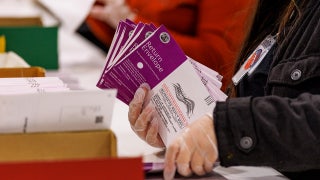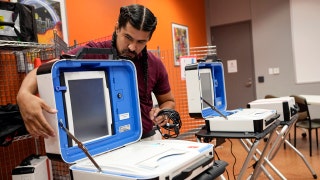It is no surprise that Florida is again pushing its way towards the front of the line on presidential primaries.
Despite all the avowals from Republicans and Democrats that they would stand firm against primaries before March 1, 2012 in any states but the favored four – Iowa, New Hampshire, South Carolina and Nevada – the Sunshine State has decided that it deserves a bigger say in the nomination.
The reason it is no surprise is that Florida largely got away with its primary poaching in 2008.
Yes, Republicans stripped the state of half its delegates for holding its primary on January 29 and pushing the elections in Iowa and New Hampshire to the first two weeks of the year. But all of the candidates campaigned there and, even with the sanctions, Florida still had more delegates at the convention than 38 other states.
And it was John McCain’s victory there that, after a very rocky run, finally put him on the path to the presidential nomination.
On the Democratic side, the penalty was even punier. After having half of their votes stripped, the Florida delegation had all of their strength restored after it was clear that Barack Obama had vanquished Hillary Clinton.
Having succeeded in its gambit before, there was little reason to think that Florida wouldn’t try again. And with the addition of two electoral votes after the 2010 Census – now 29, as many as New York – Florida will have more delegates at the party conventions and even more significance in the general election.
National party elders have promised that there will be serious consequences for the state if it chooses to jump line like an overeager tourist at Epcot Center. But with Florida’s increased electoral clout, Republican leaders in the state legislature see limited downside to the move.
What is surprising, though, is how slow the potential 2012 Republican candidates were to accept the reality that Florida looks likely to be the deciding state, yet again.
The way the calendar is shaping up now, Florida will vote on Jan. 31, three days after South Carolina, a week after New Hampshire and two weeks after the Iowa caucuses. That would again put Florida in the sweet spot after the early rounds and before the more nationalized contests of the following weeks.
(Nevada also has its caucuses in the early going, but novelty, a relatively small pool of delegates and low participation rates make it less consequential, especially in terms of momentum building.)
With more delegates than Iowa, New Hampshire and South Carolina combined, Florida promises to be a pivot point again this election cycle.
Based on the way the field is shaping up, it’s entirely likely that a different candidate will have won each of the first three big primaries.
Consider one potential outcome:
Former Minnesota Gov. Tim Pawlenty has seen his stock rise among Iowa Republicans in recent weeks, and a win there for him would be a huge boost for a candidate about whom buzz has often been lacking.
Libertarians are promising to make it hard for former Massachusetts Gov. Mitt Romney in New Hampshire, and Romney certainly can’t take the Granite State for granted. But in the end, regional affinity and Romney’s long and costly participation in state politics should give him a wide win in New Hampshire.
But Pawlenty and Romney will run smack into South Carolina and Haley Barbour. The Mississippi governor seems to be on course to lock down the first-in-the-South primary and his conservative politics and prodigious of country charm should carry the day.
Three primaries. Three winners. What a mess.
And that’s just the kind scenario Florida Republicans are hoping for because it would let their state be the launching pad for the eventual nominee again. That’s when vice presidential nominations and cabinet secretariats get dangled in front of state kingmakers.
Of all the potential candidates in the field, it is Romney who has the most to gain from a high-stakes Florida contest at the end of January.
As the likely candidate with the highest name identification levels and best-established campaign and fundraising operations, Romney has much to gain from a frontloaded primary calendar. And now that Florida has made it clear that it will break the party rules and vote early, other states will follow suit.
It’s no coincidence that Romney has been lavishing attention and campaign contributions on Florida politicians like Sen. Marco Rubio and Rep. Allen West of late. While Pawlenty and others have been leery of diving in and thereby encouraging Florida’s calendar creep, Romney is taking to the state with the enthusiasm of a spring breaker.
With nine expensive media markets and at least 2 million Republican primary voters expected next year, well-funded and well-organized Romney has a lot to gain from Florida jumping line.
Chris Stirewalt is FOX News’ digital politics editor. His political note, Power Play, is available every weekday morning at FOXNEWS.COM.












































